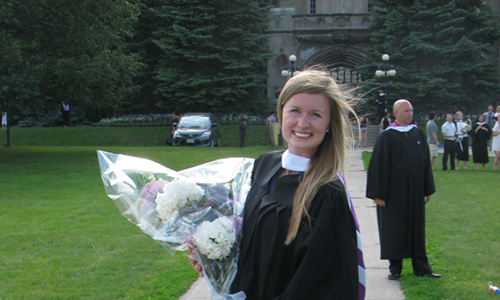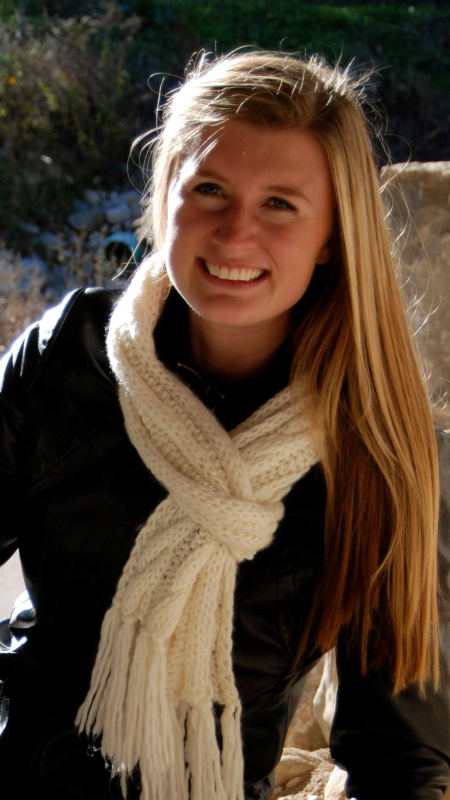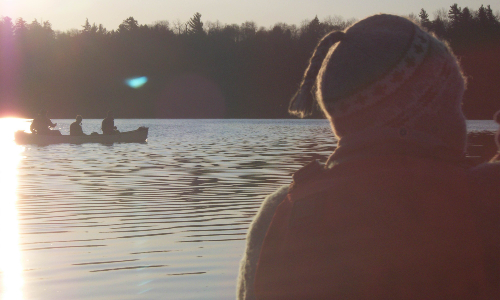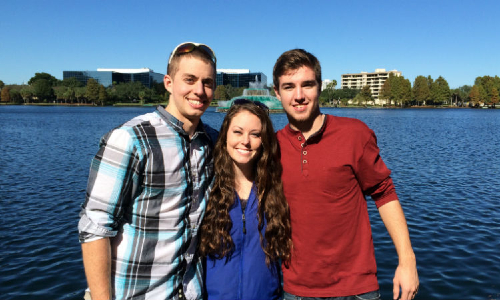Get Inspired
Finding Bravery: A Day-by-Day Journey Through PCS
Five years ago my life changed forever. I have shared my story with a variety of audiences, but sharing it with friends and family has always been the hardest. I never wanted the most important people in my life to consider me weak or broken. However, a few months ago I was reminded of the importance of sharing our stories. Identification within a community can be part of the healing process. So, here it is.

Posted: December, 7 2015
By, Ally Crich
On June 4th, 2010, I had a terrible waterskiing accident. A ski struck the area above my right eye and caused a severe concussion/TBI. At that point I had no clue how severely the injury was going to impact my life. My life pre-brain injury involved playing sports, succeeding at school, and travelling the world. I won athlete of the year in grades nine and 10, various MVP awards on sports teams, and in my last year of high school, I was granted the highest honor of “Top Graduating Athlete.” Beyond academics, I was on a Provincial Level soccer team. We won the Provincial Championship three times and the National Championship once, and also placed second at the U.S.A. Cup, which included teams from Europe and Japan. After two ankle surgeries, I could no longer compete in soccer and changed to Track & Field. I was then recruited to compete on the varsity Track and Field team at the local university. Sports were always an integral part of my identity and life.
Everything changed after my last concussion. I have had concussions before, but nothing as serious as the most recent one. I was always able to "shake it off" and resume my normal activities. Sometimes I would take a couple of days off of school and the headaches, blurred vision, irritability and fatigue would ease up. With medical clearance, I would return to the field. However, this time was different. It took longer to get cleared to resume activities. When I returned to school I could not concentrate at all. My usual zest for learning was not there, so I went back to the doctor. I was told school and sports were not options at that moment. One might think I would have been happy to not attend school, but I lapsed into a severe depression at the mere thought of it.

Currently I have headaches. They are horrible, stop you in your tracks, lay down and shut out the world headaches. I have little control over when they happen or when they will end. My balance is off, and I get dizzy and nauseated. I can't go places because lights make me sick. My mood abruptly swings from calm to agitated, often for reasons that only make sense to me. New things stand out and impact my life that didn’t used to before my injury. I cry more than I did before. I worry and stress about everything.
I tire easily. It doesn't make sense to other people that I have to lie down during the day. Crowds and noise are bothersome. I try to deal with the noise because I don't want to annoy people and constantly ask them to be quieter. I can be forgetful, a problem compounded by the difficulty in explaining my condition to others. I struggle immensely with reading comprehension.
The hurdles I face post-injury have led me to develop strategies to be successful. One such strategy includes impeccable organization so I don’t forget to complete assignments for school, or to study for exams. Limiting time in front of screens – the computer, television, phone or tablet – is helpful too.
The symptoms from my injury have adversely affected my personal relationships and employability. I can only work for a couple of hours at a time because I get too tired and need more breaks than everyone else. It has been difficult to accept that I am not like a normal person my age who can go out with friends for dinner, to a bar, or shopping.
When I had my injury, post-concussion syndrome was only supposed to last between one and six months. But nine months afterwards, I was still dealing with all of the symptoms every day. I am grateful that NHL star Sydney Crosby spoke up about post-concussion syndrome, and that he was strong enough to sit out and heal. Once the doctors saw this, and that post-concussion syndrome is real, I felt my condition was taken much more seriously.
Going from a happy-go-lucky teenager to a young adult living with a TBI and its symptoms is something that I’ve had to accept. It has changed me as a person.
Two years after my injury, I had the privilege of speaking at a conference that put me on a path to share my story with hundreds of physicians, healthcare providers and other TBI survivors. Since then, I have attended other conferences, galas, and been published in the book “Concussed” by Keith Primeau and Kerry Goulet. I have met the most incredible people since 2010 that have supported me throughout this journey. Many thanks to the Parkwood Hospital Brain Injury Program, Fowler Kennedy, The Concussion Legacy Foundation, Dr. Robert Stern and Dr. Robert Cantu in Boston, and Stop Concussions.
‘Ringing your bell’ is not something to take lightly. Shaking it off and getting back in the game is not brave. Real bravery is recovering properly, dealing with the symptoms, and possibly enduring criticism from coaches, teammates, friends and the media. Health is a fragile thing; don’t take it for granted, because it can change in a matter of seconds.
Completing my undergraduate degree in 2014, attending Chiropractic College in Georgia with a high GPA, reducing my pain medication, and being able to do some physical activities again are just a few things that I never thought I’d achieve! The most important thing I have learned from this journey has been to never judge someone. A quote I live my everyday life by is “be kind to one another,” by Ellen DeGeneres. You do not know what someone is going through behind the face they put on every day, you do not know their struggles or their story. I am so proud of how far I have come since June 4th, 2010!
Thank you to everyone who has supported and continues to support me through this day-by-day journey; I wouldn’t be where I am today without you all.
You May Also Like

Living with PCS can be hard. Find out how to cope with persistent symptoms from medical experts and others who have experienced PCS.
Coping with PCS
Caring for someone with an invisible injury can be especially difficult. Learn how to best be there for your loved one with PCS.
Caregiving for PCS